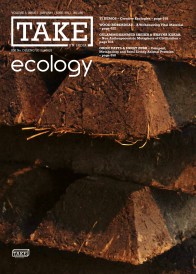
Ecology
March 2017 Issue 20Subaltern knowledge systems are already inherited by us through the extension of local, indigenous, folk and tribal beliefs and practices in the contemporary — significant among them concepts such as the ‘tree of life’ that cuts across cultural imaginaries and geo-temporalities. The mythologies such as those surrounding the benign Kalpavrikshas (wish-fulfilling trees)or Kamdhenus (wish-fulfilling fauna) serve to condition our worldview to a symbiotic understanding of the planetary holarchy by embodying the non-human with agency and desire, moving away from human exceptionalism and individualism. In this sense, myths can be thought of as accumulated repositories of prophetic wisdom that traverse through temporalities to make themselves available in the service of a future event as opposed to utopias which conjure up multiple worldings of a future-event, providing orientating devices and access key to the knowledge of the myth.
The current issue of TAKE proposes a careful examination of the myth-lore and utopias with the view to excavate disused frames and imaginative designs that would help us build a metaphorical ark preparatory for the times of ecological turbulence that lies ahead. This has translated into an anthology of experimental/ utopian writings seeking to revise and ethicise the existing relational configuration between the human and the more-than-human with a specific focus on the ‘botanies of desire’ and dietetics.
View Index Buy Now







